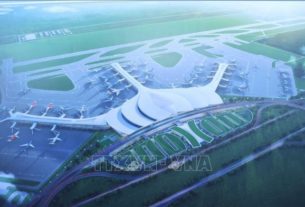Two years of shoring up finances, restructuring and refining focus begin to pay off for luxury property developer
Raimon Land Plc, the listed luxury property developer, has spent the past two years addressing its financial problems, restructuring, refocusing its market and adjusting its business direction and strategy. The move seems to be paying off.
Beginning in late 2008, Raimon started to be hit hard by the global financial crisis and domestic political unrest, both of which curbed foreign demand, its main market. Its strategy of pitching luxury properties to wealthy foreign buyers became obsolete. Sales and revenue dropped sharply.
Hubert Viriot, the chief executive, said the world economic slump did not affect the overall Thai real estate market, which remained stable as evidenced by local property prices not declining.
Although the sub-prime crisis did not extend to
In 2005, when Raimon resumed activity after completing a business restructuring, most listed developers had recovered from the 1997 crisis. Foreigners had a great appetite for coming to
Foreign ownership rules were also eased to attract foreign money, and Raimon focused on top-end second-home destinations such as Phuket, Pattaya and
However, foreign demand shrank again due to the recent economic slump, political turmoil and strengthening baht along with a crackdown on nominee structures that made Thai properties hard to buy. Banks would also not fund foreign buyers.
“Demand didn’t disappear, but slowed down and became more cautious,” said Mr Viriot.
“But it’s difficult to say when foreign buyers will come back, and we can’t wait for them. We’ve set a clear plan of not relying on any single factor, as the market is now driven by domestic demand.”
Raimon’s policy requiring at least 40% down-payments at luxury projects such as The River condominium in
What Raimon did last year was reassure the market, restructure its organisation, reduce funding costs and re-establish credibility among its shareholders and banks.
An increase in shareholding by the Kuwait-based developer and investor IFA Hotels & Resorts in Raimon to 41% in August 2009 helped to bolster the developer’s struggling status.
Raimon’s projects have made progress. Its five-billion-baht Northpoint condominium in Pattaya with 70% of units sold was completed last year. The River condominium in
Its staff of 195 in 2008 has been reduced to 130 employees now, more in line with the number of projects on hand. All remaining staff have also all been relocated to the
As well, the number of expat staff has also been reduced from 20 to eight, reflecting the new focus on Thai buyers.
Raimon’s high debt-to-equity ratio also made it difficult for Raimon to hold on to some land plots that had low potential to generate income in the near future.
Mr Viriot, who joined the company early last year, said demand for second homes was very low right now. In Phuket, the retail and hotel sectors are good but not the residential market, so the company decided to sell a plot where it earlier planned to develop a luxury villa project called Amalfi.
However, it decided to keep a five-rai beachfront plot in Pattaya to develop a new 2.8-billion-baht project called Zire Wongamat after detecting strong interest in the location among Thai buyers.
“Pattaya is a city and convenient to get to. It is a weekend destination for Thais. Business demand from Rayong, where a lot of industrial estates are located, is also strong,” said Mr Viriot.
The company will adjust its future products to meet rising domestic demand in the wake of the foreign market being so badly affected.
Changes include offering more small units, a greater focus on features desired by Thai buyers, building facilities more suitable for the local market, pricing at more realistic levels and targeting a well-defined customer group through local media and direct marketing.
As a result, Raimon’s customer ratio shifted from 96% foreigners and 4% Thais early last year to 72% Thais and 28% foreigners in September this year.
The company also conducts focus group surveys for new projects and bases its decision on market research.
At the same time, it has strengthened its credibility among its financial partners by depositing customers’ down payments directly into an account at the bank providing project loans.
“I’ve applied the same concept as our major shareholder IFA Hotels & Resorts uses in
Raimon has also started tapping the retail market with development of a shopping area at The River, giving it a new source of recurring income.
The company decided to enter the mass market with a focused target, and this has resulted in cost reductions in quarterly overhead, which has amounted to only 83 million baht this year, down from 185 million in 2008.
Advertising, SG&A (sales, general and administration) costs and monthly expenses also dropped by 72%, 55% and 44% year-on-year in each of this year’s first three quarters, respectively.
The gross profit margin increased from 7% last Dec 31 to 33% at the end of this year’s first quarter.
However, Raimon is still operating at a net loss – 230 million baht for the first nine months of this year.
Source: http://www.bangkokpost.com/business/economics/211038/raimon-s-revival
